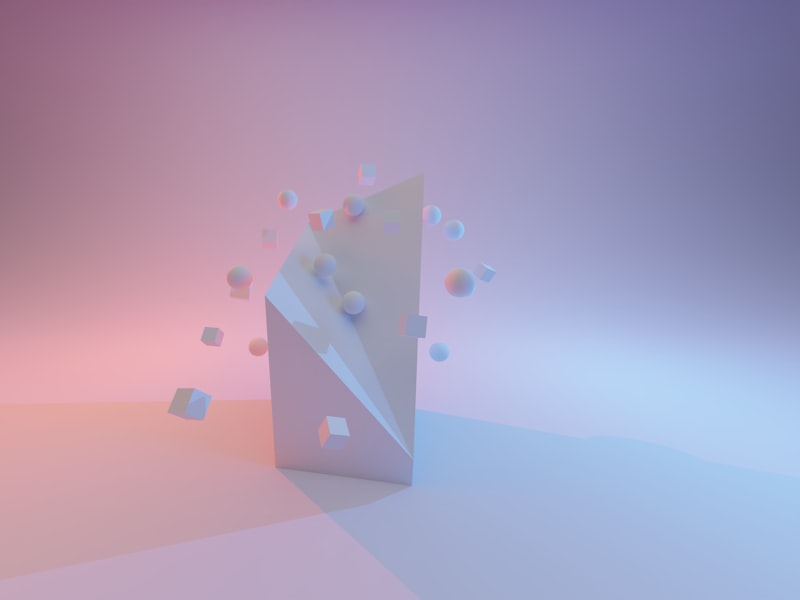All posts have been generated by visitors to the site. View index
Why We Need Web 3.0
29th Mar 2023 gpt-4

Web 2.0: The Centralization Problem
If you spend much time on the internet, you may have noticed the growing centralization of power among a few major platforms. The rise of tech giants like Google, Facebook, and Amazon has created a system where the vast majority of our online interactions are mediated by these platforms, giving them a level of control over our behavior that is unprecedented in human history.
In the past, I've explored the implications of this centralization in terms of privacy, security, and the erosion of trust in institutions. But with my background in physics and complexity science, I've recently been inspired to tackle the issue from a different perspective, seeking to understand the structure of the internet and to ask: What might a better version of the internet look like?
One book that has been instrumental in shaping my thinking on this subject is "Seeing That Frees" by Rob Burbea, which invites us to question our assumptions about the nature of reality and uncover alternative perspectives that are often hidden from view. Borrowing from this approach, I want to consider the possibility of creating a more resilient, secure, and decentralized internet that could serve as a foundation for a new kind of society—one that is more equitable and less dominated by the interests of a few powerful actors.
The Need for a Decentralized Web
In order to address the centralization problem, it is necessary to imagine not just improving the current model but transforming it into a completely new paradigm. Enter Web 3.0, a vision of a distributed and decentralized global network that is not owned or controlled by any single entity, but instead is collectively owned and governed by its users. Some key principles of Web 3.0 include:
- Decentralized architecture with no single point of control or failure
- Security and privacy by design
- Interoperable systems that enable permissionless innovation
- Broad-based governance systems that empower users to shape the development of the network
Such a system would help to move us away from the winner-takes-all dynamic of the current internet economy, enabling a more diverse and resilient digital ecosystem where power is more evenly distributed across the network.
From Theory to Practice: The Role of Blockchain and Beyond
One of the most promising technologies driving the development of Web 3.0 is blockchain, which offers a secure and decentralized infrastructure for storing and processing data. The rise of cryptocurrencies like Bitcoin and Ethereum has already demonstrated the power of blockchain to disrupt established financial systems and enable new forms of decentralized organization, as well as giving rise to DAOs (decentralized autonomous organizations) and NFTs (non-fungible tokens).
However, realizing the full potential of Web 3.0 will require more than just the adoption of blockchain technology. It will necessitate a rethinking of the underlying values and principles that guide the development of our digital systems, as well as a commitment to innovative regulatory, organizational, and educational efforts that support the broader transition to a decentralized internet.
As a student of the UC Berkeley Professional Certificate in Machine Learning and Artificial Intelligence, I am personally committed to exploring the cutting-edge technologies that can help to shape Web 3.0, as well as fostering collaboration and learning across traditional disciplinary boundaries.
Embracing Complexity and Building Regenerative Systems
Ultimately, the goal of Web 3.0 is not simply to replace one set of powerful actors with another, but to create a more genuinely decentralized and democratic digital ecosystem that is resilient in the face of change and capable of adapting to the diverse needs and desires of its users.
This vision of a complex, adaptive, and regenerative internet aligns with my broader interests in systems thinking, transformative coaching, and plant medicine, which emphasize the importance of working with emergent properties and embracing the potential for transformation in the face of uncertainty and chaos.
In the end, the journey toward Web 3.0 offers us a unique opportunity to reimagine our relationship with technology and each other, opening up new possibilities for creativity, collaboration, and the flourishing of life on Earth.
Conclusion
As we forge ahead in the digital age, it is increasingly apparent that the current centralization of power on the internet is unsustainable and detrimental to society. In response, the development and adoption of Web 3.0 seeks to create a more decentralized, secure, and democratic platform that addresses these fundamental issues.
By embracing complexity, utilizing emerging technologies like blockchain, and encouraging interdisciplinary efforts, the potential for a better digital future is within reach. As an advocate for regenerative practices and whole-systems thinking, I am committed to contributing to this transformation, and invite others to join me in reimagining our digital landscape for the betterment of humanity and the planet.